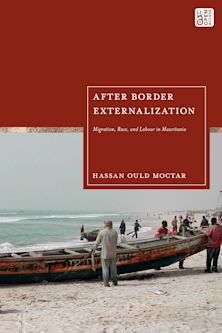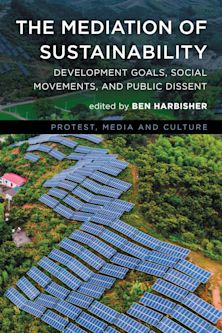- Home
- ACADEMIC
- International Development
- Development Policy and Practice
- Rights, Resources and the Politics of Accountability
Rights, Resources and the Politics of Accountability
Rights, Resources and the Politics of Accountability
This product is usually dispatched within 3 days
- Delivery and returns info
-
Free CA delivery on orders $40 or over
You must sign in to add this item to your wishlist. Please sign in or create an account
Description
'Development is a process, Amartya Sen famously noted, of 'expanding the real freedoms that people enjoy'. But freedoms depend upon on political and civil rights, or more properly a corpus of rights capable of removing such unfreedoms as tyranny, exclusion and neglect. Rights, Resources and the Politics of Accountability is the first study to seriously explore how the poor claim, contest and secure rights and how the rights of the powerful are deployed to defend their privileges and to control resources and access to power. Drawing upon exemplary case studies - spanning the globe from Mexico to Nigeria to India to the US - Newell and Wheeler have laid out a provocative new agenda for thinking about not simply the existence of a discourse of rights in development, but struggles over their character and institutionalisation, and the competing forms and mechanisms of accountability by which the poor can improve their well-being. A state-of-the-art book: theoretically rich, empirically compelling and irresistibly forward-looking.' -
Michael Watts, Director of African Studies, UC Berkeley
'This book is fascinating not only because it puts accountability at the centre of the debate between rights and access to resources and questions some inherently flawed assumptions about accountability oft repeated by today's development pundits, it is fascinating because it tells stories about how poor and marginalized come together to negotiate and claim their rights to resources from the rich and the powerful.'
Chandra Bhushan, Associate Director of the Centre for Science and Environment, New Delhi.
Table of Contents
1. Rights, resources and the politics of accountability: An introduction -- Peter Newell and Joanna Wheeler
2. Taking accountability into account: The debate so far -- Peter Newell
Part 1: Rights and resources
Overview: The political economy of resources and the cultural politics of rights: challenges for accountability -- Peter Newell and Joanna Wheeler
3. Do human rights make a difference to poor and vulnerable people? Accountability for the right to water in South Africa -- Lyla Mehta
4. Managing watersheds and the right to water: Indigenous communities in search of accountability and inclusion in Southern Veracruz -- Luisa Pare and Carlos Robles
5. Conflicting rights, environmental agendas, and the challenges of accountability: social mobilisation and protected natural areas in Mexico -- Luisa Pare and Carlos Cortez
6. From Protest to Proactive Action: Building Institutional Accountability Through Struggles for the Right to Housing -- Celestine Nyamu
7. Rights to health and struggles for accountability in a Brazilian municipal health council -- Andrea Cornwall, Silvia Cordeiro and Nelson Giordano Delgado
Part 2: Investor accountabilities
Overview: Rights, resources, and investor accountability -- Peter Newell and Joanna Wheeler
8. Corporate accountability and citizen action: Cases from India -- Peter Newell with Vaijanyanta Anand, Hasrat Arjjumend, Harsh Jaitli, Sampath Kumar and A.B.S.V. Ranga Rao
9. Environmental injustice, law and accountability -- Rohit Lekhi and Peter Newell 10. Oil and accountability issues in the Niger Delta -- Oga Steve Abah and Jenks Zakari Okwori
11. Compliance versus accountability: Struggles for dignity and daily bread in the Bangladesh garment industry -- Simeen Mahmud and Naila Kabeer
12. Accountability begins at home: The living wage movement in the United States -- Stephanie Luce
Product details
| Published | May 01 2006 |
|---|---|
| Format | Paperback |
| Edition | 1st |
| Extent | 320 |
| ISBN | 9781842775554 |
| Imprint | Zed Books |
| Dimensions | 0 x 0 mm |
| Series | Claiming Citizenship |
| Publisher | Bloomsbury Publishing |
About the contributors
Reviews
-
This book is fascinating not only because it puts accountability at the centre of the debate between rights and access to resources and questions some inherently flawed assumptions about accountability oft repeated by today's development pundits, it is fascinating because it tells stories about how poor and marginalized come together to negotiate and claim their rights to resources from the rich and the powerful.
Chandra Bhushan, Head, Industry & Environment Centre and Associate Director of Centre for Science and Environment, New Delhi.
-
The chapters in this book weave together quite fluidly and there is plenty of useful cross-referencing and a though-provoking conclusion. Particularly useful in this volume is the extended introductory essay which sets out the social actors, strategies, rights and resources involved in each chapter. This kind of overview is very useful for teaching. Most chapters are well argued and convincing...At its best, this volume achieves a true synthesis of theory and practice and manages to broaden and deepen the debate on rights in relation to accountability processes.
Helen Hintjens, Institute of Social Studies
-
Development is a process, Amartya Sen famously noted, of 'expanding the real freedoms that people enjoy'. But freedoms depend upon on political and civil rights, or more properly a corpus of rights capable of removing such unfreedoms as tyranny, exclusion and neglect. Rights, Resources and the Politics of Accountability is the first study to seriously explore how the poor claim, contest and secure rights and how the rights of the powerful are deployed to defend their privileges, and to control resources and access to power. Drawing upon exemplary case studies - spanning the globe from Mexico to Nigeria to India to the US - Newell and Wheeler have laid out a provocative new agenda for thinking about not simply the existence of a discourse of rights in development, but struggles over their character and institutionalisation, and the competing forms and mechanisms of accountability by which the poor can improve their well-being. A state-of-the-art book: theoretically rich, empirically compelling and irresistibly forward-looking.
Michael Watts, Director of African Studies, UC Berkeley


































